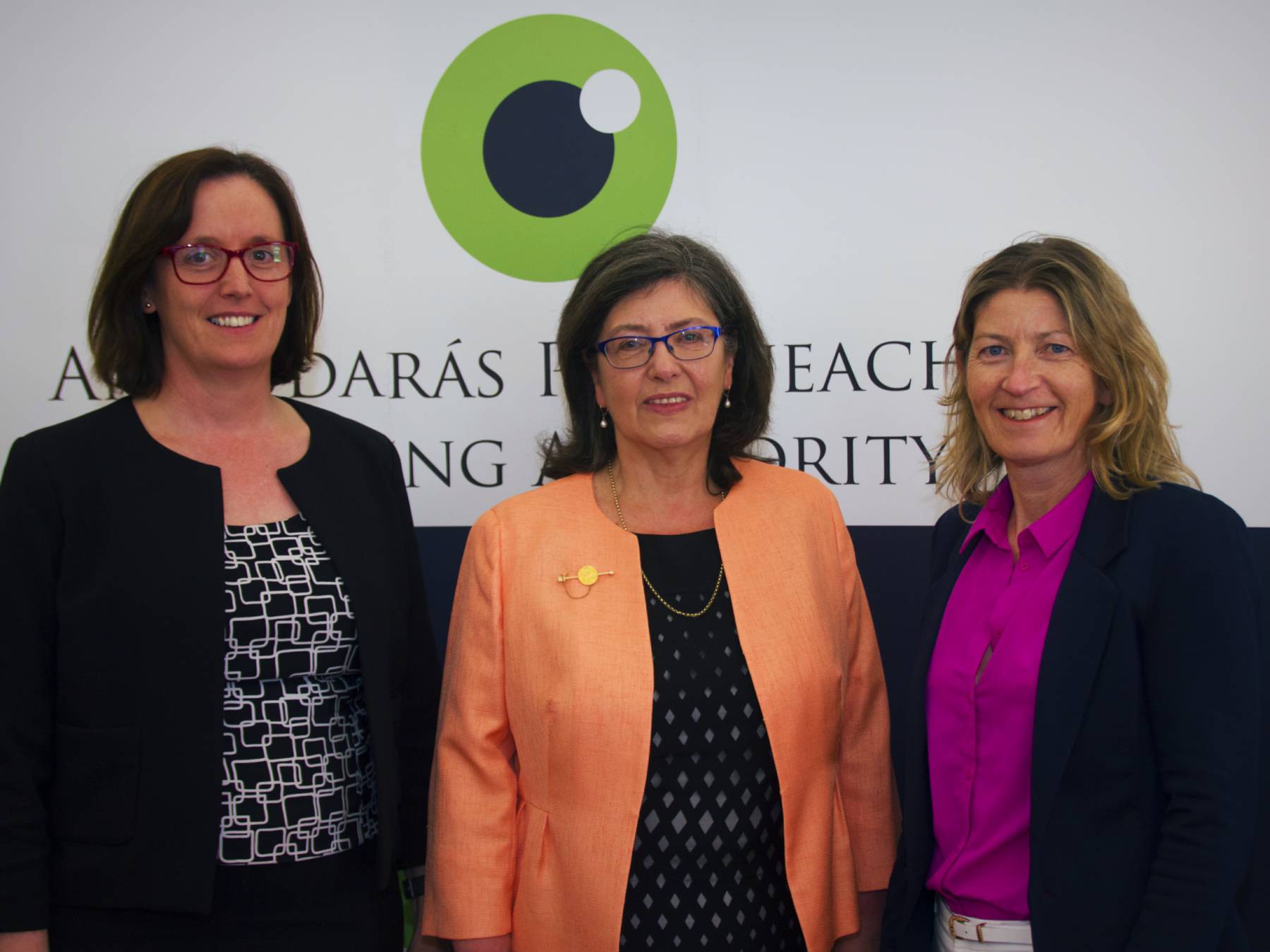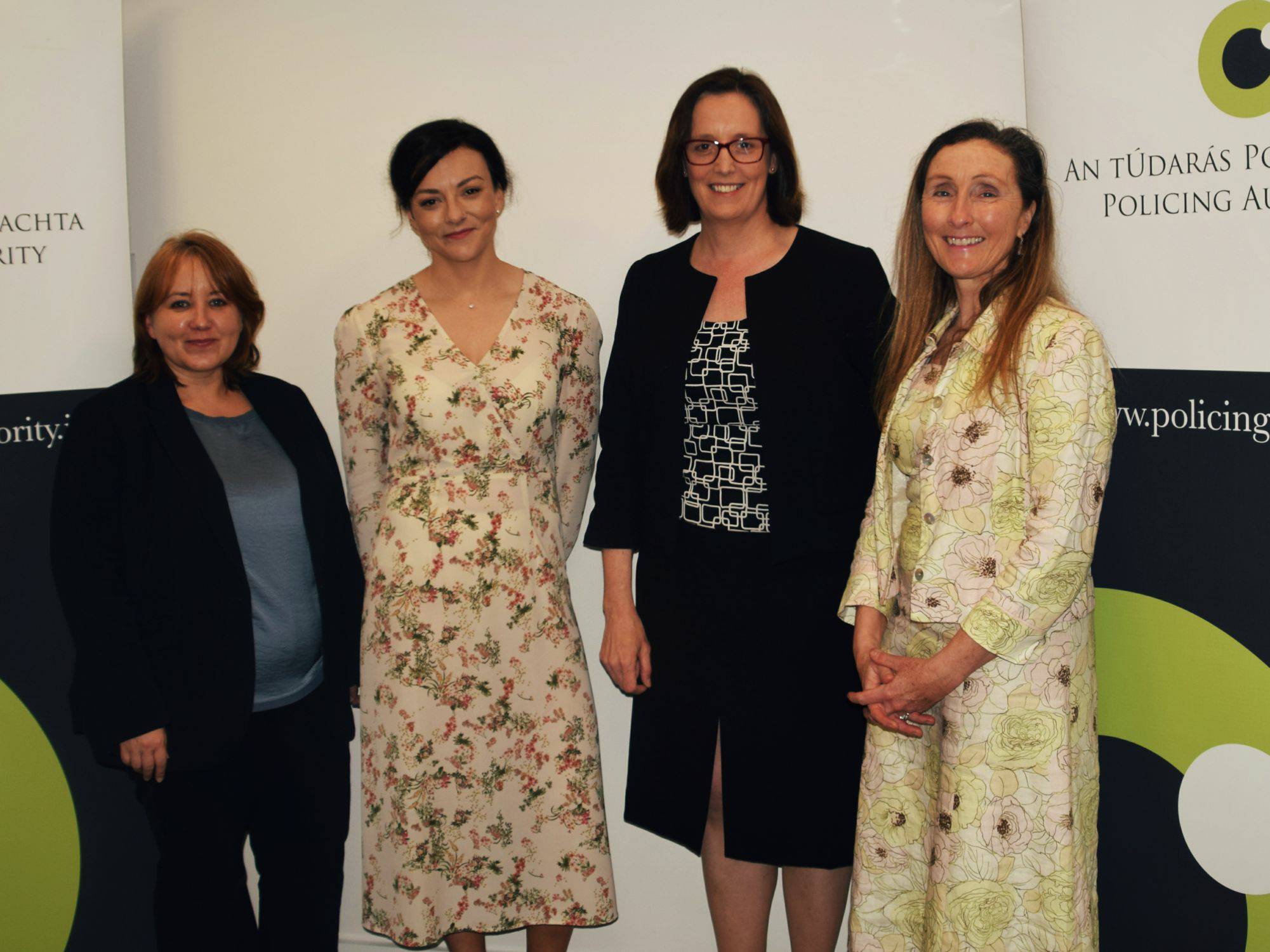The Policing Authority today announces the award of two inaugural bursaries under its Research Bursary Scheme, to a total value of €35,000. Following a competitive application process, the awards have been made to projects focusing on the experiences children and young people have in their interactions with the Garda Síochána. The research work will start in the coming weeks and the results of both projects will be published in 2020.
The two selected projects are:
Young people’s rights in the investigation of offences: A qualitative study of young people’s experiences of being interviewed by the Garda Síochána.
The aim of the project is to understand the experience of young people alleged or suspected of being involved in committing a criminal offence when they are being interviewed by the Garda Síochána, and to assess how these experiences meet international standards on the procedural rights of children. The project team comprises Professor Ursula Kilkelly and Dr Louise Forde, from the Centre for Children’s Rights and Family Law at the School of Law, University College Cork.

Pictured (L-R) are Policing Authority CEO Helen Hall, Policing Authority Chair Josephine Feehily and Professor Ursula Kilkelly
Adolescent pathways to crisis mental health care: From Garda contact to child and adolescent psychiatric services.
This project examines the current care pathways of Irish young people experiencing a crisis mental health event from first contact with the Garda Síochána through to psychiatric care. It aims to develop recommendations for policy and practice that can enhance adolescent access to psychiatric services and thus, promote timely assessment, and if necessary, treatment. This research team comprises Professor Fiona McNicholas, Dr Louise Rooney and Dr Ingrid Holme, from the Department of Child and Adolescent Mental Health, School of Medicine and Medical Science, University College Dublin.

Pictured (L-R) are Dr Ingrid Holme, Dr Louise Rooney, Policing Authority Chair Helen Hall and Professor Fiona McNicholas
Speaking today, Policing Authority Chief Executive, Helen Hall, said:
“The Research Bursary Scheme is a positive step in strengthening links between the Authority and the third level sector and we were delighted with the high calibre and wide variety of the applications received. It was also introduced to support the Policing Authority’s statutory role to commission research which promotes an improvement in the standards of policing service provided by the Garda Síochána. We are optimistic that the research will enhance Ireland’s knowledge of how children and young people experience interacting with the Garda Síochána, and will inform future service improvements and policy development.”
In accordance with the Policing Authority’s Statement of Strategy 2019-2021, the main objective of the Research Bursary Scheme is to promote continuous improvement in policing through creating relevant and robust research capacity in the policing field. The research results should enhance the Policing Authority’s familiarity with new evidence based research on policing, and help promote public and stakeholder awareness of quality new research on policing.
Notes
Full details of the Policing Authority Research Bursary are available here. The selection panel for the scheme was made up of Policing Authority Member Bob Collins, Policing Authority Head of Legal Policy and Research, Síle Larkin and National Disability Authority Senior Research Officer, Dr Gráinne Collins. The total value of the two bursaries is €35,000. Due to the high calibre of the applications received, the decision was taken to allocate extra funds to the Bursary, increasing the total funding available from €25,000. A maximum award of €25,000 per project applied.
About the Recepients:
Project 1: Young people’s rights in the investigation of offences: A qualitative study of young people’s experiences of being interviewed by the Garda Síochána.
Professor Ursula Kilkelly has been researching children’s rights and youth justice for nearly 25 years, publishing her work in international journals, monographs and edited collections with prestigious publishers. She has undertaken funded research for national and international bodies and has a reputation for work that has policy and practical impact. She currently holds an IRC awarded COALESCE grant funded by the Department of Children and Youth Affairs aimed to evaluate Irish youth justice against international research and standards.
Dr Louise Forde recently completed her PhD on international youth justice at the School of Law, UCC funded by the Irish Research Council. She currently works as a postdoctoral researcher at the Centre for Children’s Rights and Family Law, publishing her research in international peer reviewed journals. She is presently working on various projects in youth justice and children’s rights, including research for the Irish Youth Justice Service on the new youth justice strategy and has undertaken a consultation with children for the Global Study on Children Deprived of their Liberty with Professor Kilkelly and colleagues at Queen’s University Belfast.
Project 2: Adolescent pathways to crisis mental health care: From Garda contact to child and adolescent psychiatric services.
Professor Fiona McNicholas is Chair of Child and Adolescent Psychiatry in UCD and works clinically as a consultant Child and Adolescent Psychiatrist in Lucena Child and Adolescent Mental Health Services, Saint John of Gods and Our Lady's Hospital for Sick Children, Crumlin. She has a successful track record of publications, funding and training nationally and internationally.
Dr Louise Rooney is a Criminologist working as a Postdoctoral Research Fellow in UCD’s School of Medicine. She is a mixed-methods researcher with over five years’ experience in conducting evidence-based research in both the criminal justice and health sector. Dr Rooney has lectured on numerous programmes in University College Dublin, Maynooth University and Dublin Institute of Technology.
Dr Ingrid Holme is a medical sociologist with over ten years of experience in working in academic research, including policy development. She has just finished carrying out qualitative research in relation to the Milestone Study, an EU funded research project across Ireland, the UK, Netherlands and Croatia into youth experience of mental health services.



